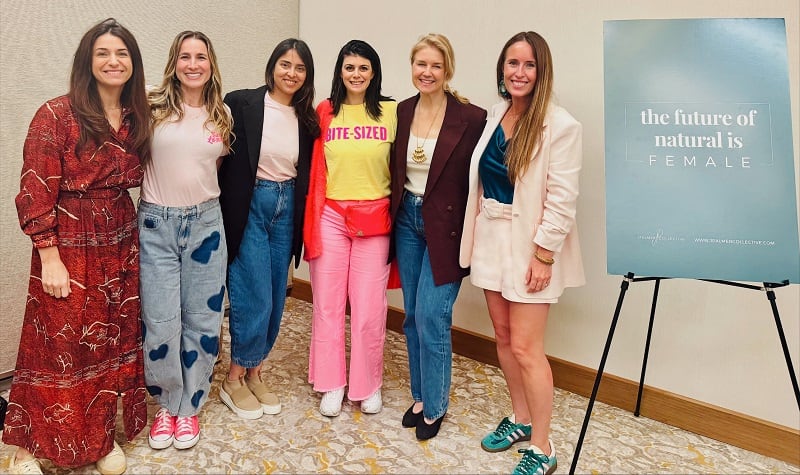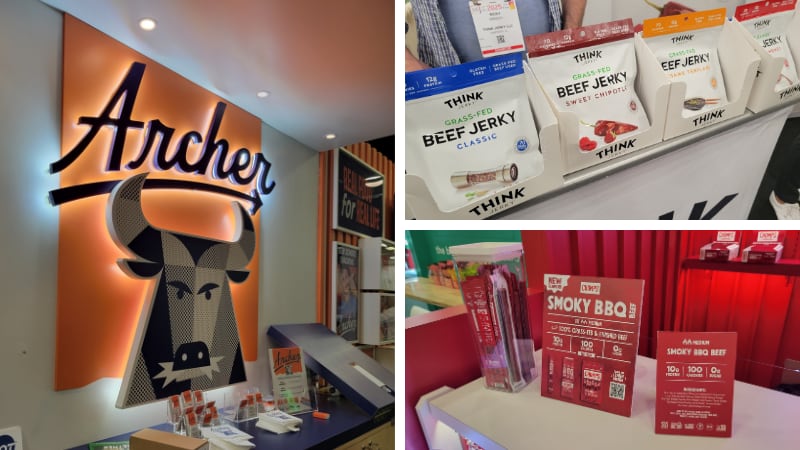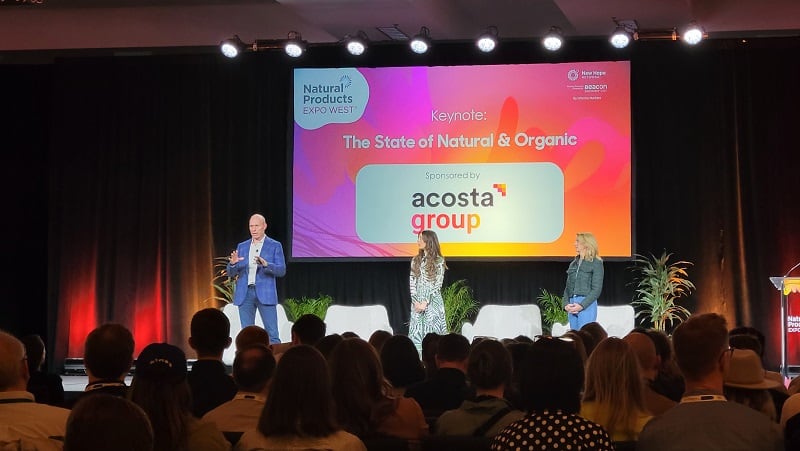A scrappy startup mentality, putting in the time and effort and investing in a vision was the recipe for success for brands like Jeni’s Splendid Ice Cream and gluten-free brand Sweet Loren’s, their founders shared at a panel discussion hosted by JPalmer Collective the week of the Natural Products Expo West conference.
Co-founder of Jeni’s Ice Cream Jeni Britton, made and served handmade ice cream in her store when the company started. Additionally, the Founder and CEO of refrigerated baked goods brand Sweet Loren’s Loren Castle lugged luggage filled with products to her first tastings at retailers.
These moments were crucial to building early success for the two brands, but also demonstrated how much it would take to build a brand, they explained.
“I launched Sweet Loren’s with Whole Foods over 10 years ago, and I was that girl demoing. I lived in New York City at the time. I would take a little wheelie suitcase on the subway, bring it into Whole Foods, demoing next to the refrigerated section for four hours,” Castle said. “I saw what it took to really have my own company, and I knew I did not want to work for someone.”
Sweet Loren’s founder: ‘I’m not doing this to be cute’
When Castle first started, she would often hear from men that her brand was “cute,” disregarding the amount of work and creativity it took to launch Sweet Loren’s, Castle explained.
“I’m not doing this to be cute. I’m doing this to reinvent food for the next generation,” she emphasized.
Sweet Loren’s grows with collabs and innovation
Sweet Loren’s expanded its portfolio with refrigerated puff pastries, pizza doughs and pie crusts last year. Earlier this year, the gluten-free brand overcame challenges working with natural food dyes to release a collaboration with Barbie for a limited-edition pink heart-shaped cookie.
Additionally, many women are in charge of purchasing the groceries for the house, so “who better to create a product” than a woman, Castle pointed out.
Britton added that media depictions of female founders and executives often do not accurately portray what it takes to be a successful founder.
“Now, we go and we see women entrepreneurs, and they look so fabulous, and they look so successful,” said Britton “It is actually hard to gauge what it looks like to be a successful entrepreneur. What does it actually look like to build a company? Because it is scrappy, dirty, you are not cute when you are building a company.”
Floura CEO: ‘Curiosity keeps peeling back the onion’
James Beard award-winning ice cream maker Britton is now focusing on a completely different aisle of the grocery store with her snack bar brand Floura, taking lessons learned from her previous brand to build this new line, Britton said. “Fiber could be the next protein,” she emphasized.
After years of building Jeni’s Ice Cream, Britton stepped back from the company to focus on her health and found by improving her fiber intake that she felt better. She became fascinated by fiber and the number of Americans deficient in the macronutrient, which became the basis for Floura.
“I’m not doing this to be cute. I’m doing this to reinvent food for the next generation.”
Loren Castle, founder and CEO of Sweet Loren's
Curiosity is crucial to turning a good idea for a brand into a vision that can change consumers' lives, Britton explained.
“Curiosity keeps peeling back the onion, and then all of a sudden you are locked into something,” Britton said. “This is that proverbial, ‘If not me, then who?’ Now, you have to do it, and now you are just locked in.”
Only 5% of men and 9% of women in the US consume the recommended daily amount of dietary fiber, according to data from the American Society for Nutrition. Fiber deficiency is associated with a higher risk of heart disease and diabetes, the American Society for Nutrition added.





